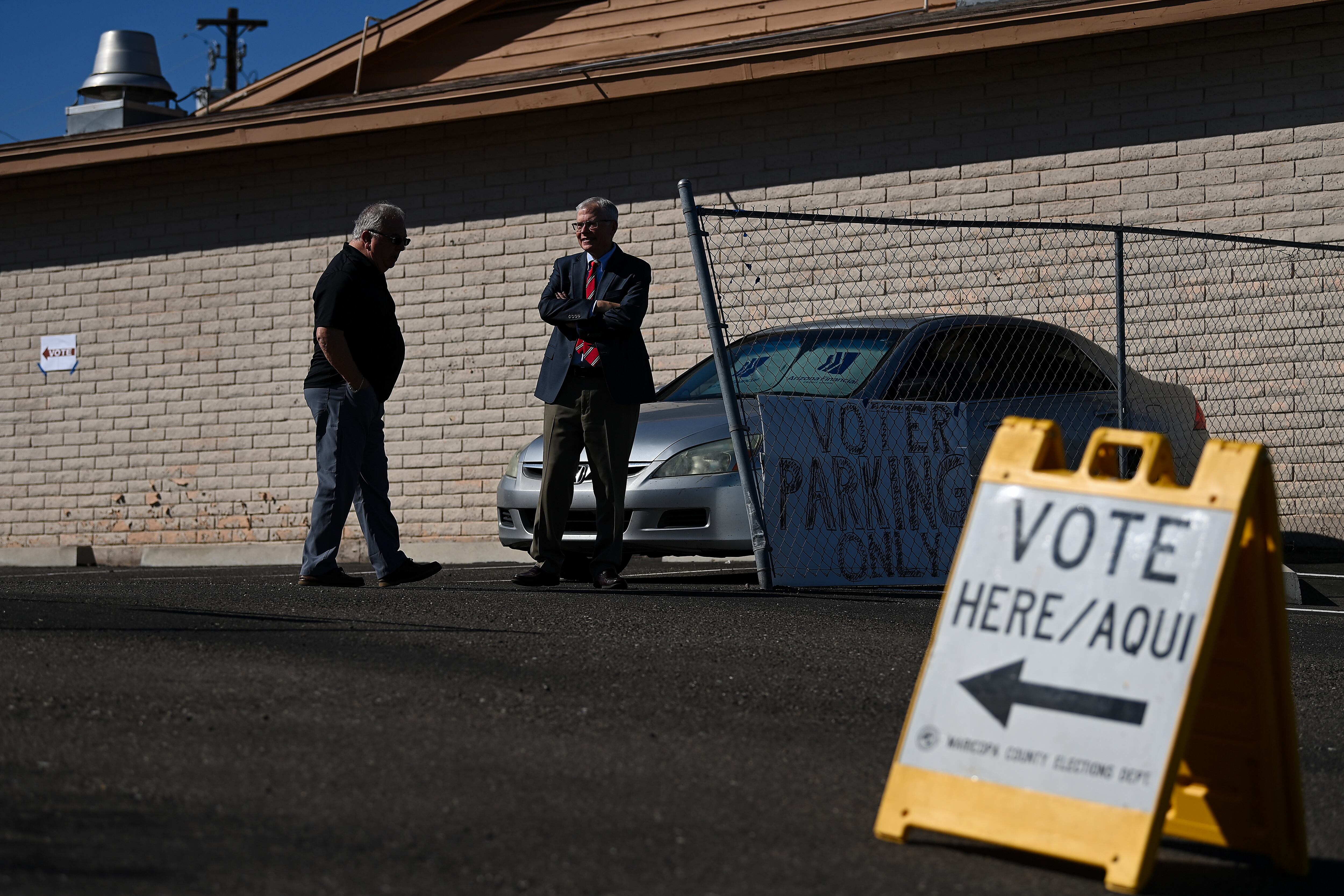Votebeat is a nonprofit news organization reporting on voting access and election administration across the U.S. Sign up for Votebeat Arizona’s free newsletter here.
A global Microsoft-based computer outage early Friday crippled the electronic systems Arizona’s two largest counties use for early in-person voting, causing election officials to quickly divert to backup plans to keep early voting open for the state’s primary election.
The breakdown affected the devices that Maricopa and Pima counties use at voting locations to check voters in, verify voter eligibility and print ballots. It did not affect the machines the counties use to count ballots, which are not used during early voting because voters place their completed ballots into envelopes to be counted later.
The outage hit in the middle of the night, and when polls opened, the counties had chosen different plans on what to do about it: Maricopa only opened four of its planned 41 locations at 9 a.m.— the locations where it was able to immediately get new equipment. Pima decided to open all six sites it had planned to on time at 8 a.m. but switched to using provisional ballots. It’s unclear if any other Arizona counties faced outages that affected early voting, although many others said they did not.
The outage comes as the state is more than halfway into its early voting period for the July 30 primary election, on a light day of early voting — only 200 people were expected to show up to vote in-person countywide in Maricopa County on Friday, for example.
The crashes highlight a type of vulnerability in local election systems across the country — the vast majority of which operate on Microsoft Windows. That raises urgent new questions about how to prevent such meltdowns from happening during nationwide elections, especially the November presidential election, and how officials would respond in the heat of election day voting.
That’s especially true in counties, such as Maricopa and Pima, that rely entirely on electronic systems to check in voters, make sure they are eligible to vote, and print their ballots, and that no longer keep on hand printed voter rolls or pre-printed ballots. Both counties use a “vote center” model where voters can vote anywhere, which requires the use of this technology.
Maricopa replaces equipment to solve problem
The global outage was caused by a defective update released by software security company Crowdstrike that affected Microsoft’s Windows operating system. The outage was widespread across some of the world’s most critical systems, affecting hospitals, airlines, 911 calls centers, and financial institutions.
The U.S. Cybersecurity and Infrastructure Security Agency, which provides election security support to local election offices nationally, has recommended the use of Crowdstrike as a tool to detect phishing attacks.
In Maricopa County, the update affected only devices that were turned on during the update, but not those that were turned off, according to county spokesperson Fields Moseley.
IT staff from all county departments started to work in the middle of the night on all of the county’s computers that were affected, Moseley said, including the polling location equipment.
The county chose to fix the problem on its unused ballot-on-demand printing systems, and then replace the equipment that was out at polling places with that updated equipment.
By 1 p.m., the county teams had 21 sites opened, and by 3 p.m., nearly all were open. They were expecting fewer than 500 voters to the 40 locations expected to be open on Saturday.
Pima County issues provisional ballots
The outage in Pima County affected the system it uses to check in voters and check their eligibility to vote, according to Recorder Gabriella Cázares-Kelly. As a workaround, the county had poll workers call the main office to check voter information before issuing the voter a provisional ballot.
By 10:45 a.m., the issue was fixed. The county was able to connect remotely to the equipment at the polling places to fix the issue, Cázares-Kelly said.
During the outage, poll workers had voters fill out provisional ballots so that county workers would double-check their eligibility to vote before their ballot was counted.
“We have plans in place for events like this,” Cázares-Kelly said. “Our well-organized team launched a coordinated effort that allowed voters to access our services with little disruption.”
The Arizona Secretary of State’s Office said Friday morning it was reaching out to provide IT support to counties.
The office emphasized in a statement that the outage did not affect vote counting in the state.
Jen Fifield is a reporter for Votebeat based in Arizona. Contact Jen at jfifield@votebeat.org.



